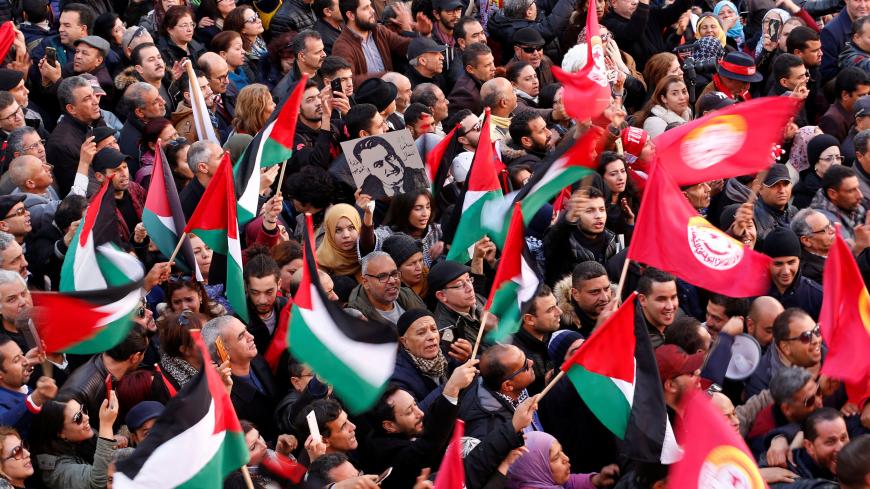TUNIS/THALA, Tunisia — A gas mask is spray-painted on a wall in the gritty Tunis suburb of Douar Hicher, beneath it reads the phrase "We have p.p1 {margin: 0.0px 0.0px 0.0px 0.0px; font: 11.0px Helvetica; -webkit-text-stroke: #000000} span.s1 {font-kerning: none} suffocated." This captures the mood of Douar Hicher, where unemployment, crime and anger against Tunisia’s leaders hang heavily in the air.
“Everything is collapsing. The other day, a 25-year-old murdered his mother and his sisters here,” said Mohammed, who ekes out a living selling oranges. Pressed for a reason, the teenager offered, “They were poor; they had nothing. There is no stability, no work in Tunisia.” Young men with sullen faces filed past along the garbage-strewn streets p.p1 {margin: 0.0px 0.0px 0.0px 0.0px; font: 12.0px Helvetica} p.p1 {margin: 0.0px 0.0px 0.0px 0.0px; font: 12.0px Helvetica} purposelessly during working hours as if to illustrate his point.



